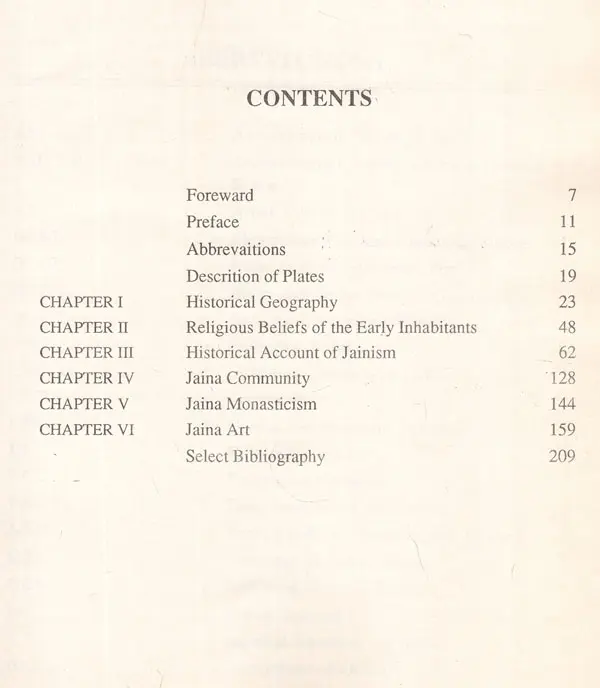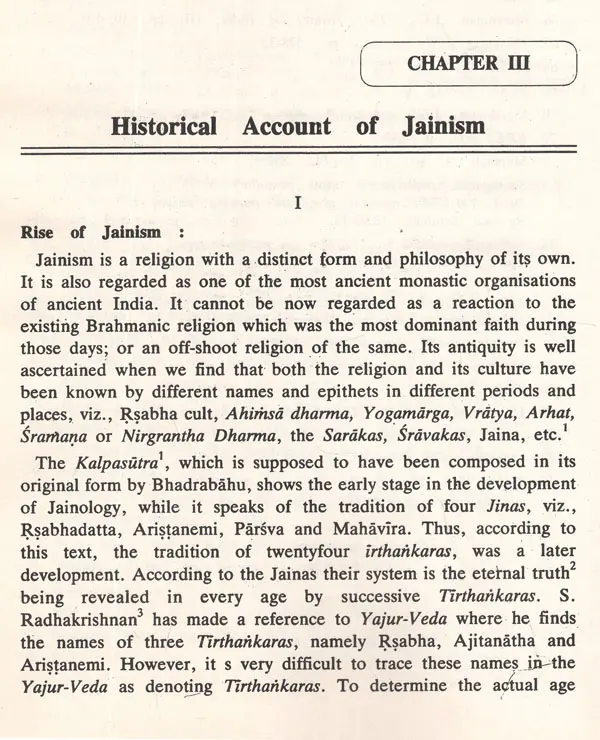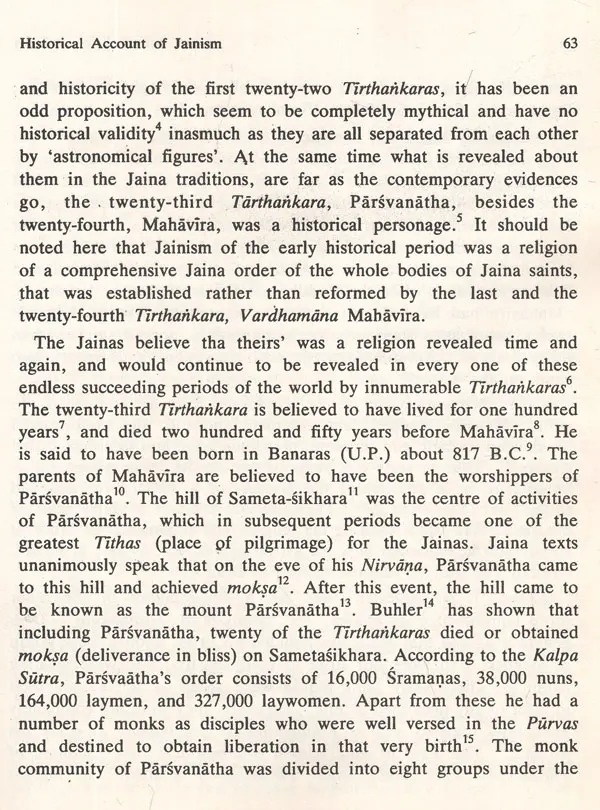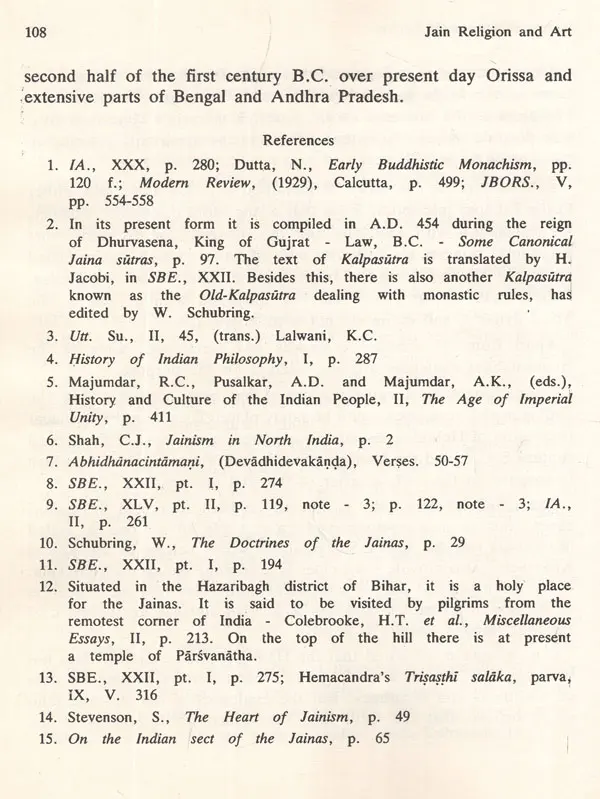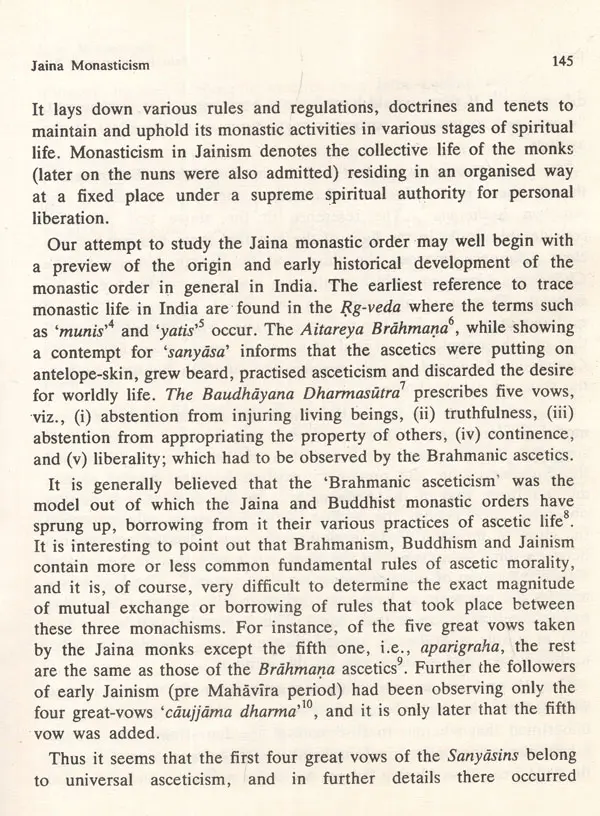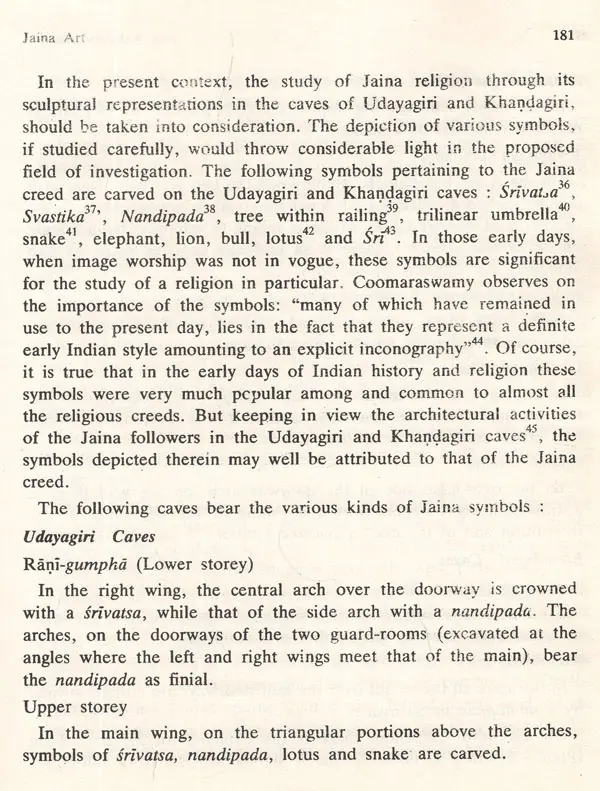
Jain Religion and Art (An Old and Rare Book)
Book Specification
| Item Code: | UAO473 |
| Author: | Ananda Chandra Sahoo |
| Publisher: | Agam Kala Prakashan, Delhi |
| Language: | English |
| Edition: | 1994 |
| ISBN: | 817320005x |
| Pages: | 227 |
| Cover: | HARDCOVER |
| Other Details | 10.00 X 7.50 inch |
| Weight | 580 gm |
Book Description
The book attempts to give a diachronic account of Jaina Religion and Art in ancient Orissa, which ranks high among the rich sub-cultural zones of the Indian sub-continent. For reasons which defy rational explanation, Orissa has remained for long and still remains, a relatively neglected area in historical researches on Ancient India. In recent year a welcome awareness is seen to offer a corrective to this situation, and the present work is a modest attempt arising out of that wareness.
Dr. Ananda Chandra Sahoo (b.1954) obtained his B.A. (Hons.) and M.A. degrees from the Utkal University and Visva Bharati respectively. In 1987, he was awarded Ph.D. degree by the Visva Bharati University for his thesis entitled "Jainism in Ancient Orissa". Since 1986, he teaches in the Department of Ancient Indian History, Culture and Archaeology, Visva Bharati, Santiniketan.
The present work is a modest attempt to reconstruct the history of Jaina religion and art in ancient Orissa. The primary motive behind this endeavour lies in the fact that a study of this kind has long been overdue. Thus, the attempt here is to offer a diachronic account and analysis of the history of Jaina religion and art from the earliest times to twelfth century A.D.
In the eastern part of the Indian sub-continent Orissa is a potential area for the study of the Jaina religion. In the pan- Indian context attempts have been made to study the history of Jaina religion, its impacts and relevance. Regional studies in this field are limited to the areas such as Gujarat, Rajasthan and Karnataka where Jainism is still a living religon. As far as Orissa is concerned no concentrated effort have so far been made in these directions. Here it may be pointed out that apart from Tamil Nadu, Orissa is the most important region on the eastern sea-board, where Jainism had been a living religion for centuries together. The adherants of the Jaina religion have left for the posterity quite a large number of monumental evidences which speak of the wide prevalence and popularity of Jainism in this region.
The present work substantially represents the author's thesis approved by Visva Bharati for the degree of Doctor of Philosophy in 1987. I would like to take the opportunity to put on record my sincere gratitude to my guru Dr. Pranabananda Jash, Professor and Head of the Department of Ancient Indian History, Culture and Archaeology, Visva Bharati. I had the proud privilege to complete my Ph.D. thesis under his affectionate care and supervision. Words really fail to express my experience and gratitude.
The book Jaina Religin and Art is primarily a recast of the author's Ph.D. thesis. The author has viewed the entire problem with historical perspective. Jainism which flourished along with Buddism was but a modified form of the older proto Jainism delineated by the Tirthankaras particularly by Parsvanatha, the twenty-third Tirthankara. Strictly speaking, Jainism is not so much a religion as a monastic organisation. The founder of this order was Vardhamana popularly known as Mahavira or Nigantha Nataputta, an inhabitant of Kundagrama in Vaisali during c. sixth century B.C. An indeliable contribution of Mahavira to Jainism is the construction of an order upon a loose group of ascetics called acala.
It is interesting to note that the Jainas unlike the Buddhists share many rituals with the Hindus. They believe in castes and acknowledge the priesthood of the Brahmamas. The Jainas even agree with the Brahmasas alone in ascetic self-torture, which Buddhism vehemently opposes. Not only these, the Jainas even observed, of course, in the later period, festivals and fasts which are notionally the festivals of the Hindus, e.g., Ganesa-caturthi, Anantacaturdasi, Dipavali, Rakshabandhana, etc.
Jainism enjoyed its her-day in Orissa since very early times. Tradition. avers that the Tirthankaras like Aranatha, Parsvanatha and Mahavira visited this region which attained its pinnacle of glory at the time of illustrious king Kharavela of the Mahameghavahana Cedi dynasty. Ina fact, there had been no significant development of Jainism in Orissa after him till the eighth-ninth centuries A.D.
**Contents and Sample Pages**

